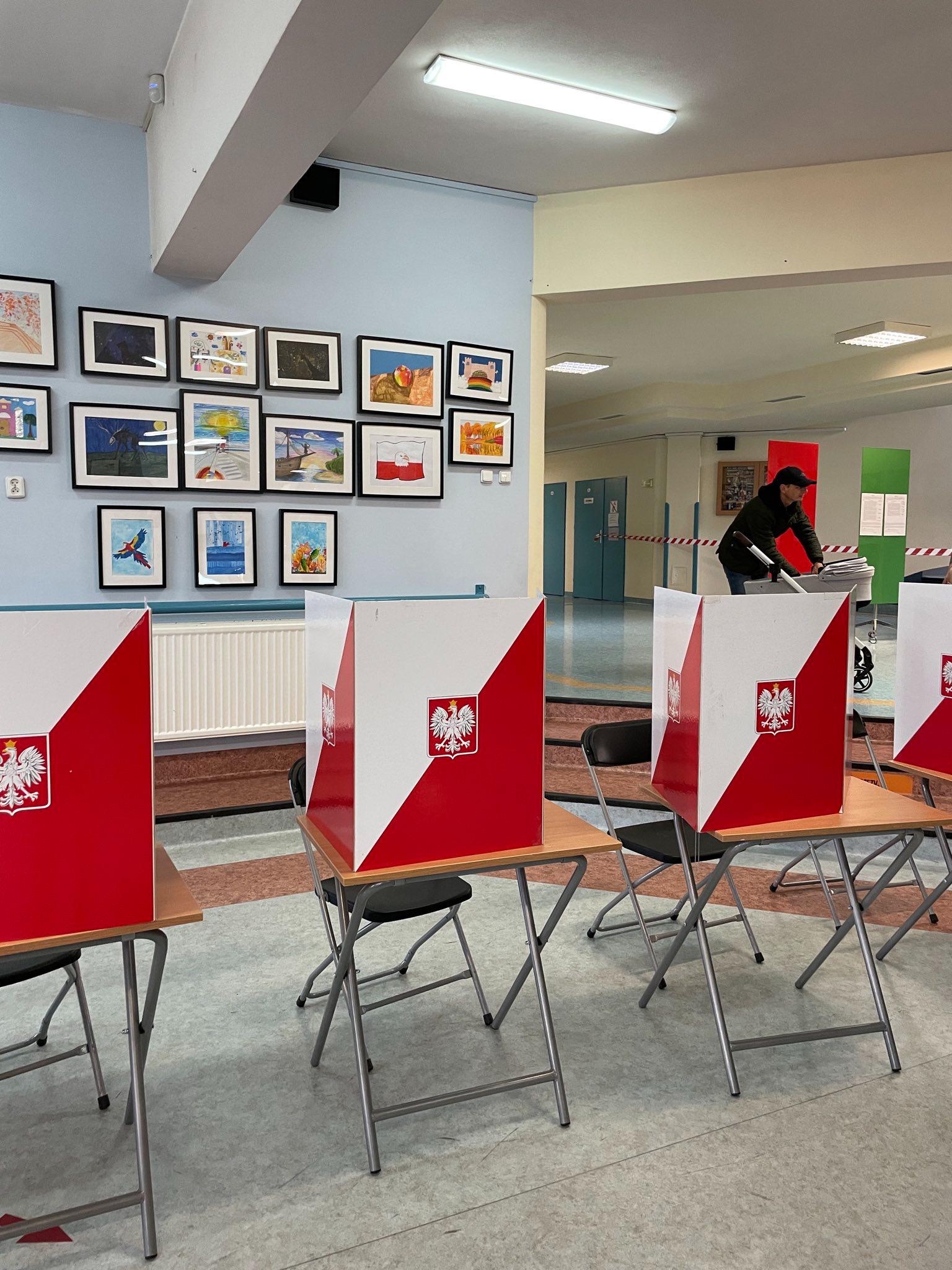
EPDE member Political Accountability Foundation (PAF) presented their findings and recommendations after observing the voting day of the parliamentary elections and the national referendum in Poland.
The parliamentary elections held in conjunction with the national referendum can be assessed as exceptional in terms of voter turnout at 74.38%, a sign of remarkable voter engagement. The process itself proceeded without significant incidents that could significantly impact the election results and/or referendum results.
The National Election Commission (NEC), together with the National Election Office (NEO), administered the election process efficiently, fulfilling all the obligations imposed on both institutions by the electoral calendar. The Commission issued the necessary guidelines within the legal deadlines and the election commissions were formed on time and with the required composition. The counting process went ahead without undue delays and votes from all electoral commissions, including those abroad, were counted. The presentation of the results by the NEC was transparent and accessible.
The election administration organised both votes efficiently and in accordance with the applicable electoral calendar, and the election commissions, both PECs and DECs, were set up on time and counted the required number of members.
The elections to the Sejm and Senate were ordered by the President of the Republic of Poland on 8 August 2023, less than five months after a wide range of amendments to the Electoral Code came into force. One week later, the Sejm ordered a nationwide referendum on matters of particular importance to the state for 15 October 2023, the day of the parliamentary elections. The ordering of the referendum was preceded by the amendment to the law on the national referendum, less than a month earlier. The introduction of significant and far-reaching changes to the laws governing the electoral process shortly before the date of the elections and referendum is an infamous tradition, continuing since the 2020 presidential elections going against the ruling of the Polish Constitutional Tribunal and international standards.
The NEC’s guidelines relating to the rights of domestic observers and containing interpretations of the provisions of the Election Code limiting the scope of observation were challenged by civil society organisations to the Supreme Court (SN), which in its decisions confirmed the legitimacy of the complaints. The NEC subsequently adjusted the wording of some guidelines, leaving the others unchanged.
The observation of the work of the Precinct Election Commissions (PECs), in particular of the vote counting process, confirmed the poor quality of the training of commission members leading to the improper application or omission of election day procedures set out in the NEC guidelines. This referred, for example, to the issue of determining the validity of ballots and votes jointly, by all members of the commission, a procedure that was not followed in a significant number of polling stations observed.
The principle of secrecy of the ballot was violated in most observed polling stations and manifested itself in group/family voting and the insufficient number of properly prepared voting places. This, combined with the widely observed lack of reaction from PEC members and the crowds present in many polling stations, created conditions that made it impossible to ensure the secrecy of the vote.
A separate problem concerned the way in which the validity of the referendum was determined based on the number of valid ballots taken out of the ballot box, which meant that practically the only way not to take part in a referendum that is combined with other elections was to refuse to be given a referendum ballot. This, however, at the same time violates the secrecy of the vote as it reveals the will of the voter to those working in the commission and those present at the polling station.
The conduct of the Election Day and its assessment should be considered in the context of the wider electoral process, especially with regards to the electoral campaign, which has been very strongly influenced by the abuse of public resources (including public media) by certain participants, creating an uneven playing field for the conduct of this election.
The purpose of the observation of the electoral process is, among other things, to increase public interest in electoral issues and to foster citizen engagement in the process, which should result in the improvement in the quality of the electoral process and the legal regulations underpinning it. The significant increase in the participation of both domestic (non-partisan) and party observers in this election may be evidence of the strengthening of the importance of civic oversight over the electoral process in Poland.
Recommendation 1: Improve and standardise the training system for members of electoral commissions:
Recommendation 2: Introduce mechanisms to ensure respect of the secrecy of the vote:
Recommendation 3: Increase and harmonise the rights of observers:
Recommendation 4: Revise the number of mandates allocated to electoral districts as requested by the National Electoral Commission in its communique to the Speaker of the Sejm from 21 October 2022
Recommendation 5: Reduce the upper limit of the number of inhabitants per voting precinct from 4,000 to 3,000 at most;
Recommendation 6: Develop mechanisms that seek to prevent the introduction of legislative changes to the regulations governing the electoral and referendum process in a period shorter than the 6 months required by the Constitutional Court.
The preliminary recommendations, presented above, will be further developed in the final report and will include specific proposals for the improvement of the legal framework and its implementation.
Subscribe to our
newsletter
Sign up for our monthly newsletter
and receive the latest EPDE news
Subscribe to our
newsletter
Sign up for our monthly newsletter and receive the latest EPDE news